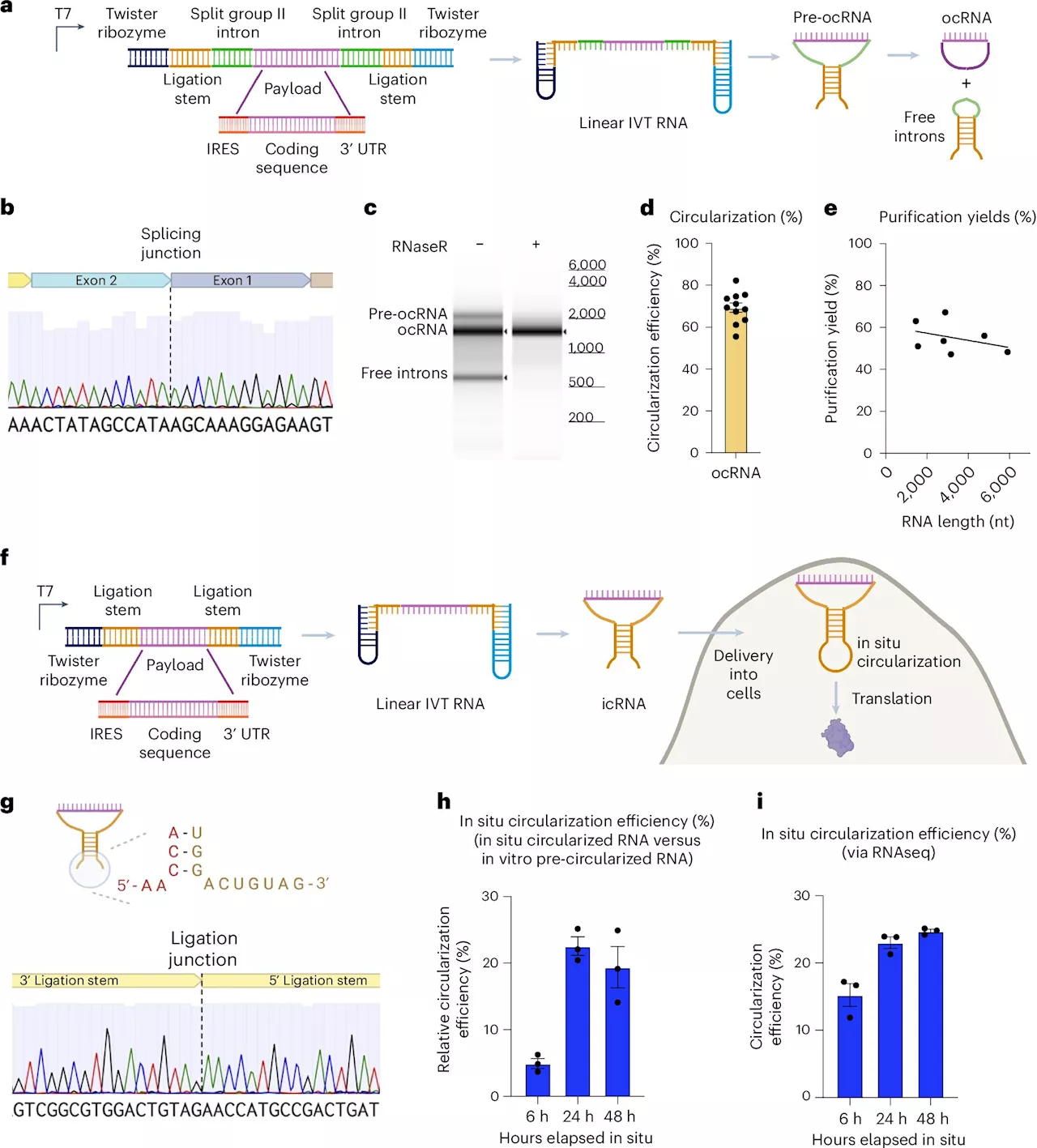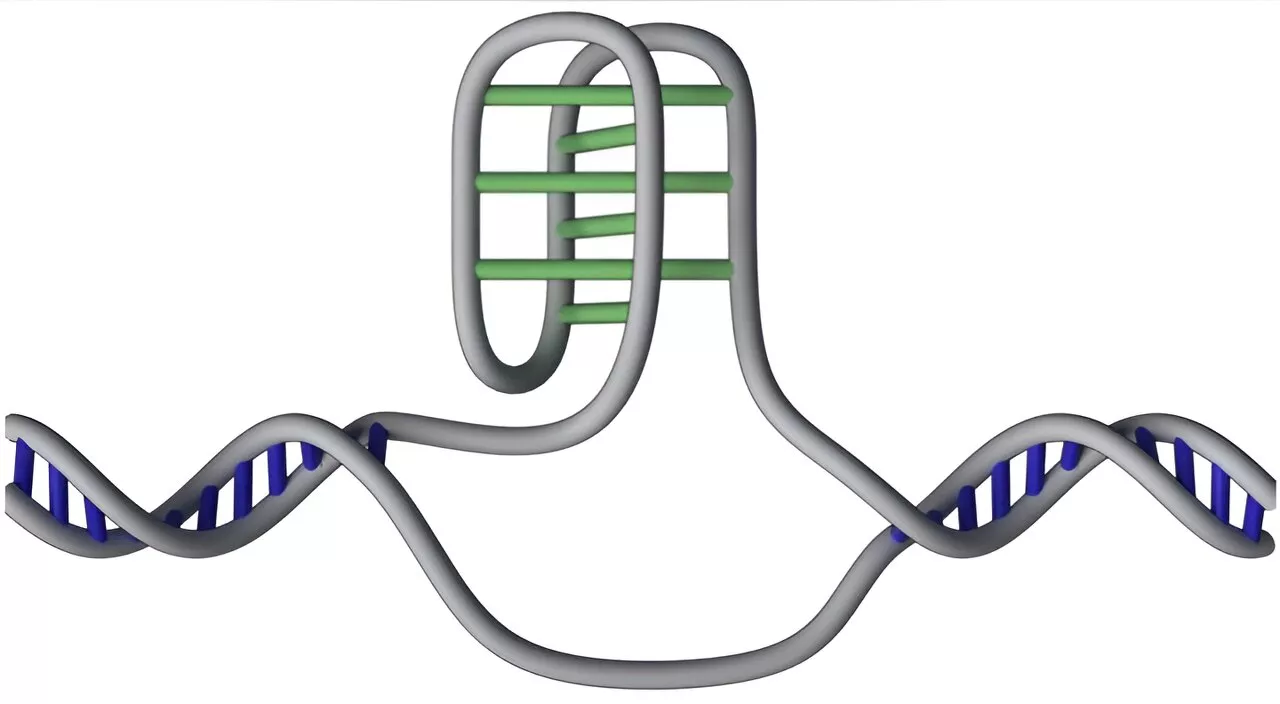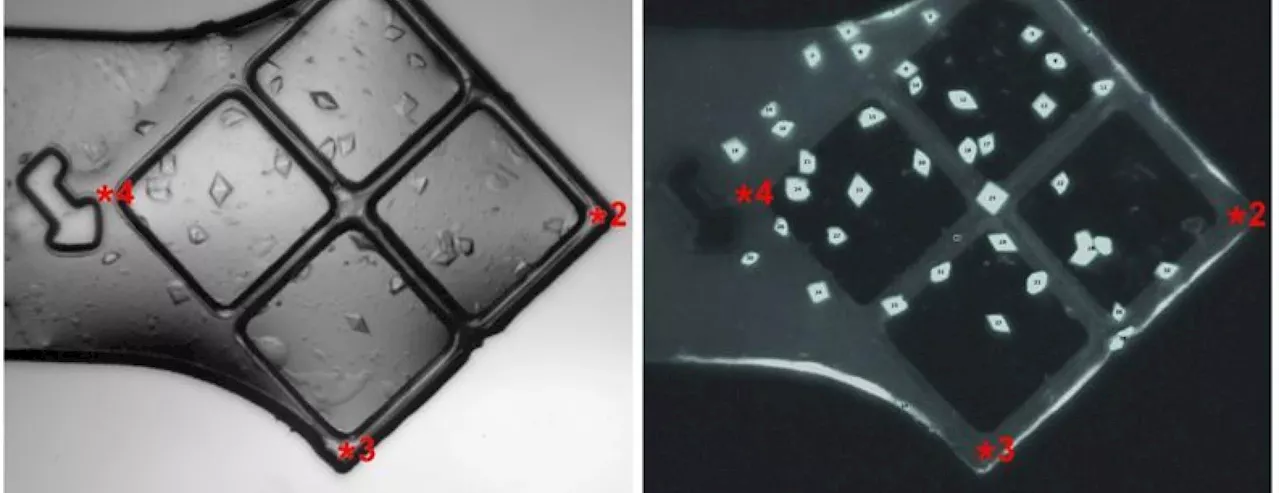Researchers at the Department of Energy's SLAC National Accelerator Laboratory have uncovered new insights into the fundamental mechanisms of RNA polymerase II (Pol II), the protein responsible for transcribing DNA into RNA. Their study shows how the protein adds nucleotides to the growing RNA chain.
Scientists unlock the secrets of how a key protein converts DNA into RNA retrieved 29 August 2024 from https://phys.org/news/2024-08-scientists-secrets-key-protein-dna.html
This document is subject to copyright. Apart from any fair dealing for the purpose of private study or research, no part may be reproduced without the written permission. The content is provided for information purposes only.Use this form if you have come across a typo, inaccuracy or would like to send an edit request for the content on this page. For general inquiries, please use ourThank you for taking time to provide your feedback to the editors.
Your feedback is important to us. However, we do not guarantee individual replies due to the high volume of messages.to let the recipient know who sent the email. Neither your address nor the recipient's address will be used for any other purpose. The information you enter will appear in your e-mail message and is not retained by Phys.org in any form.Get weekly and/or daily updates delivered to your inbox.
Physics News Science News Technology News Physics Materials Nanotech Technology Science
United States Latest News, United States Headlines
Similar News:You can also read news stories similar to this one that we have collected from other news sources.
 Closing the RNA loop holds promise for more stable, effective RNA therapiesNew methods to shape RNA molecules into circles could lead to more effective and long-lasting therapies, shows a study by researchers at the University of California San Diego.
Closing the RNA loop holds promise for more stable, effective RNA therapiesNew methods to shape RNA molecules into circles could lead to more effective and long-lasting therapies, shows a study by researchers at the University of California San Diego.
Read more »
 Closing the RNA loop holds promise for more stable, effective RNA therapiesNew methods to shape RNA molecules into circles could lead to more effective and long-lasting therapies, shows a new study. The advance holds promise for a range of diseases, offering a more enduring alternative to existing RNA therapies, which often suffer from short-lived effectiveness in the body.
Closing the RNA loop holds promise for more stable, effective RNA therapiesNew methods to shape RNA molecules into circles could lead to more effective and long-lasting therapies, shows a new study. The advance holds promise for a range of diseases, offering a more enduring alternative to existing RNA therapies, which often suffer from short-lived effectiveness in the body.
Read more »
 Researchers demonstrate mechanism that may have stabilized the first RNA moleculesThe origins of life remain a major mystery. How were complex molecules able to form and remain intact for prolonged periods without disintegrating? A team at ORIGINS, a Munich-based Cluster of Excellence, has demonstrated a mechanism that could have enabled the first RNA molecules to stabilize in the primordial soup.
Researchers demonstrate mechanism that may have stabilized the first RNA moleculesThe origins of life remain a major mystery. How were complex molecules able to form and remain intact for prolonged periods without disintegrating? A team at ORIGINS, a Munich-based Cluster of Excellence, has demonstrated a mechanism that could have enabled the first RNA molecules to stabilize in the primordial soup.
Read more »
 Breast Cancer Index Predicts Benefit of Ovarian Function Suppression in Premenopausal WomenResearchers studied RNA from tumors of premenopausal women with HR-positive breast cancer.
Breast Cancer Index Predicts Benefit of Ovarian Function Suppression in Premenopausal WomenResearchers studied RNA from tumors of premenopausal women with HR-positive breast cancer.
Read more »
 Researchers investigate cell-free DNA as early sepsis marker in foalsIt's hard to be a horse. It's especially hard to be a newborn foal, dropped into a world of microbes and bacteria with your sole initial defense against devastating infections being the antibodies you get from your mother's milk, or colostrum.
Researchers investigate cell-free DNA as early sepsis marker in foalsIt's hard to be a horse. It's especially hard to be a newborn foal, dropped into a world of microbes and bacteria with your sole initial defense against devastating infections being the antibodies you get from your mother's milk, or colostrum.
Read more »
 Researchers map 50,000 of DNA's mysterious 'knots' in the human genomeResearchers have mapped 50,000 of DNA's mysterious 'knots' in the human genome. The innovative study of DNA's hidden structures may open up new approaches for treatment and diagnosis of diseases, including cancer.
Researchers map 50,000 of DNA's mysterious 'knots' in the human genomeResearchers have mapped 50,000 of DNA's mysterious 'knots' in the human genome. The innovative study of DNA's hidden structures may open up new approaches for treatment and diagnosis of diseases, including cancer.
Read more »
